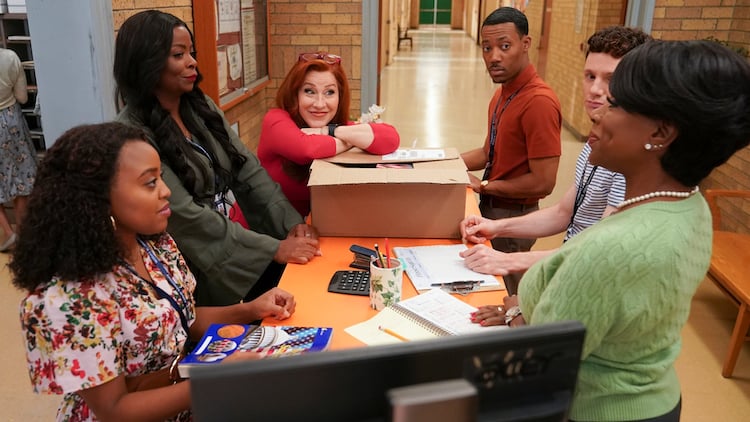
“Abbott Elementary” is the story of a predominantly Black elementary school. is an Emmy Award-winning series. Brittani Nichols, who writes for the Emmy Award-winning series, brings her experiences as a Black and queer woman to television. Photo: ABC
Since its release in 2021, “Abbott Elementary” has been capturing the hearts of audiences—as well as Emmy Awards. Tracy E. Gilchrist of Advocate Today recently sat down with series writer Brittani Nichols to discuss how the series sheds light on the systemic inequalities of the American education system.
Nichols grew up in Chicago as the oldest of seven siblings. She began her career in comedy through smaller streaming platforms that she says are more willing to “take risks” on minority stories.
“I feel lucky, because I think that I started my career at a time where people were starting to tell those stories a little bit more than they had been. We were getting the opportunity to be main characters in some of these stories,” Nichols says.
‘A League of Their Own’ is changing game for queer, Black women
Now, the story of a predominantly Black elementary school is an Emmy Award-winning series. As a writer for “Abbott Elementary,” Nichols is bringing her experiences as a Black and queer woman to television.
While the show features openly yet casually queer teachers, Nichols also believes it features another inherently queer experience that all audiences can relate to: found family.
“This show is very much about chosen family, and it’s about how our fraught family dynamics inform a lot of what we do, including our work,” she elaborates. “As a queer writer, it’s nice to see other people embrace that you can choose who you want to be around, and who you like to interact with. That’s a power that every individual has, to craft the life that you wanna have.”
The mockumentary follows a group of teachers at a Philadelphia public school who are “outnumbered and underfunded,” but determined to help improve their students’ lives. While the series addresses the systemic inequalities in the education system, Nichols shares that they always intended to put story first.
“It’s always story first. It’s never ‘What are we trying to say?’ or ‘What point are we trying to make? It’s always just ‘What journey are these characters on and what are they learning?’” Nichols explains.
“And it’s just a nice show in that the things the characters are learning, there’s also this opportunity for the audience to learn. A lot of these issues that they’re being confronted with people might know exist, but they might not.”
Still, Nichols sees the show as a learning experience for audiences, who might not know the full extent of disparity in schools.
She explains: “I think a lot of people know sort of in the abstract that our public education system has its shortcomings and that it’s not being funded in the way that in should be. But what that looks like on a day-to-day basis, how that impacts people every single day of their lives, how it impacts students, that’s something that I think might be left to the imagination if you don’t currently have an actual lived experience with it.”
This article originally appeared on AdvocateChannel.com, and is shared here as part of an LGBTQ+ community exchange between Q Voice News and Equal Media.
